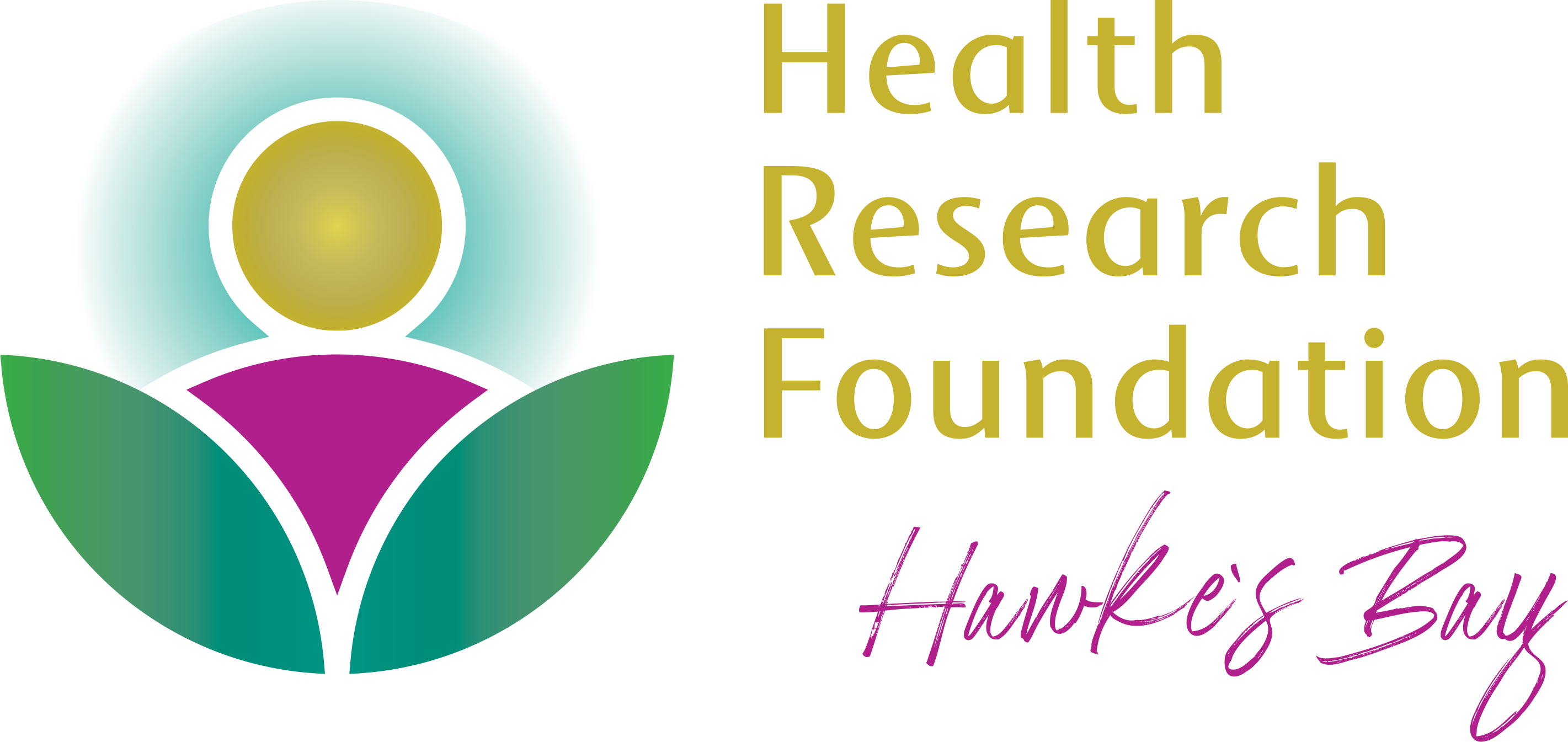Proud of our researchers
Research funded through the Health Research Foundation - Hawke's Bay has had a positive impact on health not only in Hawke’s Bay, but often nationwide:
Interview The Breeze – Hawke’s Bay
Listen to Jacque and Martin interviewing Laura on the exciting progress the foundation is making in the Bay: Listen to the interview
Discoverers of Tomorrow
Today’s young medical professionals are our discoverers of tomorrow. Investing in the future generation is an important role of The Foundation through providing funding support for “studentships” – small study projects under supervision, for undergraduates, postgraduates and specialist research training. One young doctor the Foundation is supporting, is Tamsin Roberts, a former junior medical officer […]
Learning from our Older Generation
New Zealand has an ageing population. Today the percentage of population over the age of 65 is nearing 15% and by 2050 this is projected to have increased to 25%. By 2050, one in every four New Zealanders will be aged 65 or older, compared to one in eight today. During the past 50 years, The […]
Asthma Research – Local Research, Global Impact
A global issue, Hawke’s Bay, through the Foundation, has been at the coalface of research into the disease. More than six thousand children, between the age of six and fourteen years who lived in Hawke’s Bay during 1992-1993 have been part of the largest worldwide collaborative research project ever undertaken. The International Study of Asthma […]
Sexually Transmitted Infections
The Hawkes Bay region has higher than average population case rates of sexually transmitted infections Young people in Hawkes Bay and nearby Tairāwhiti, MidCentral and Whanganui DHB regions have some of the highest rates of bacterial sexually transmitted infections (STIs) in New Zealand. STIs like chlamydia and gonorrhoea are one of the main preventable causes […]
Working in the Community
Foundation provided financial support to adapt the VIP model for primary healthcare, which was trialed at The Hastings Health Centre and coordinated by nurse Helen Francis. During the first 18 months of this programme 2849 women were asked about their safety. Of these 140 were experiencing abuse and health clinicians had concerns about another 58 […]
We Talk about Family Violence
New Zealand has moved from a country where the ugly issues of child and partner abuse were rarely approached, to a nation where thousands of medical professionals are well trained and supported to ask the difficult questions and respond safely. In 2002 a small team from the Hawke’s Bay District Health Board; Service Manager Mollie […]
Back to Sleep
New Zealand has one of the highest rates of cot death or Sudden Infant Death Syndrome (SIDS) in the world. The Foundation’s support allowed Hawke’s Bay to participate in a three-year national study (primarily funded by Health Research Council), which led to world-wide change on the best way to sleep newborns. The research relied on […]
Hypoglycaemia Prevention in Newborns with Oral Dextrose
Hypoglycaemia (low blood sugar) is the commonest metabolic condition of the newborn. It affects up to 15% of babies, and the incidence is increasing as risk factors such as maternal diabetes and preterm birth are becoming more common. Neonatal hypoglycaemia frequently leads to neonatal intensive care unit (NICU) admission and may cause long-term brain damage. […]
PIP: Pre-diabetes intervention package in primary care
Researcher profiles: Prediabetes management urgently needed There is an urgent need to implement effective prediabetes management strategies to reduce the increasing health and economic costs of New Zealand’s growing diabetes epidemic. The prevalence of diabetes is 7% and the prevalence of prediabetes is 26%. Good clinical trial evidence has demonstrated that lifestyle advice prevents progression […]
- « Previous
- 1
- 2
- 3
- 4
- Next »
